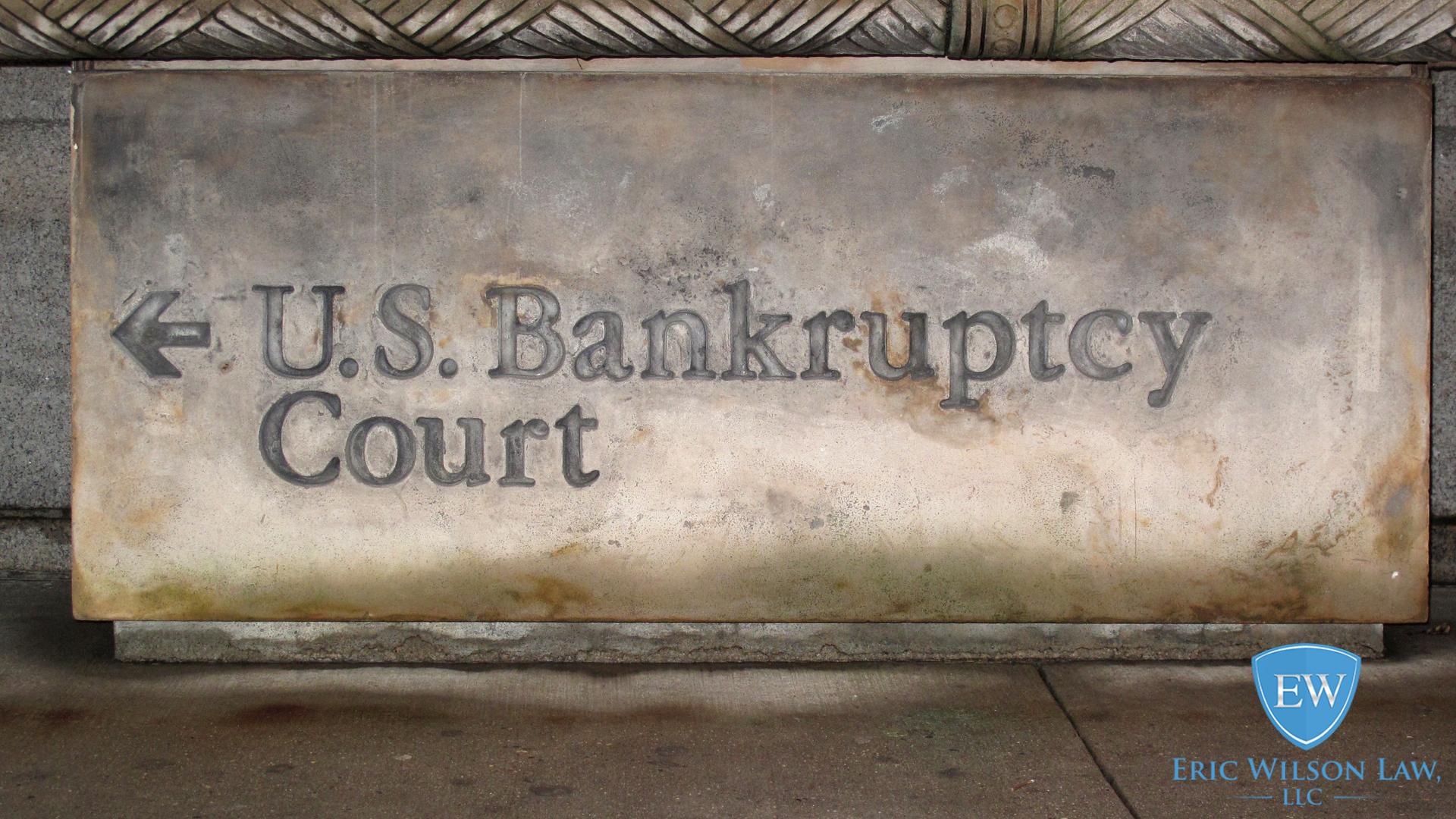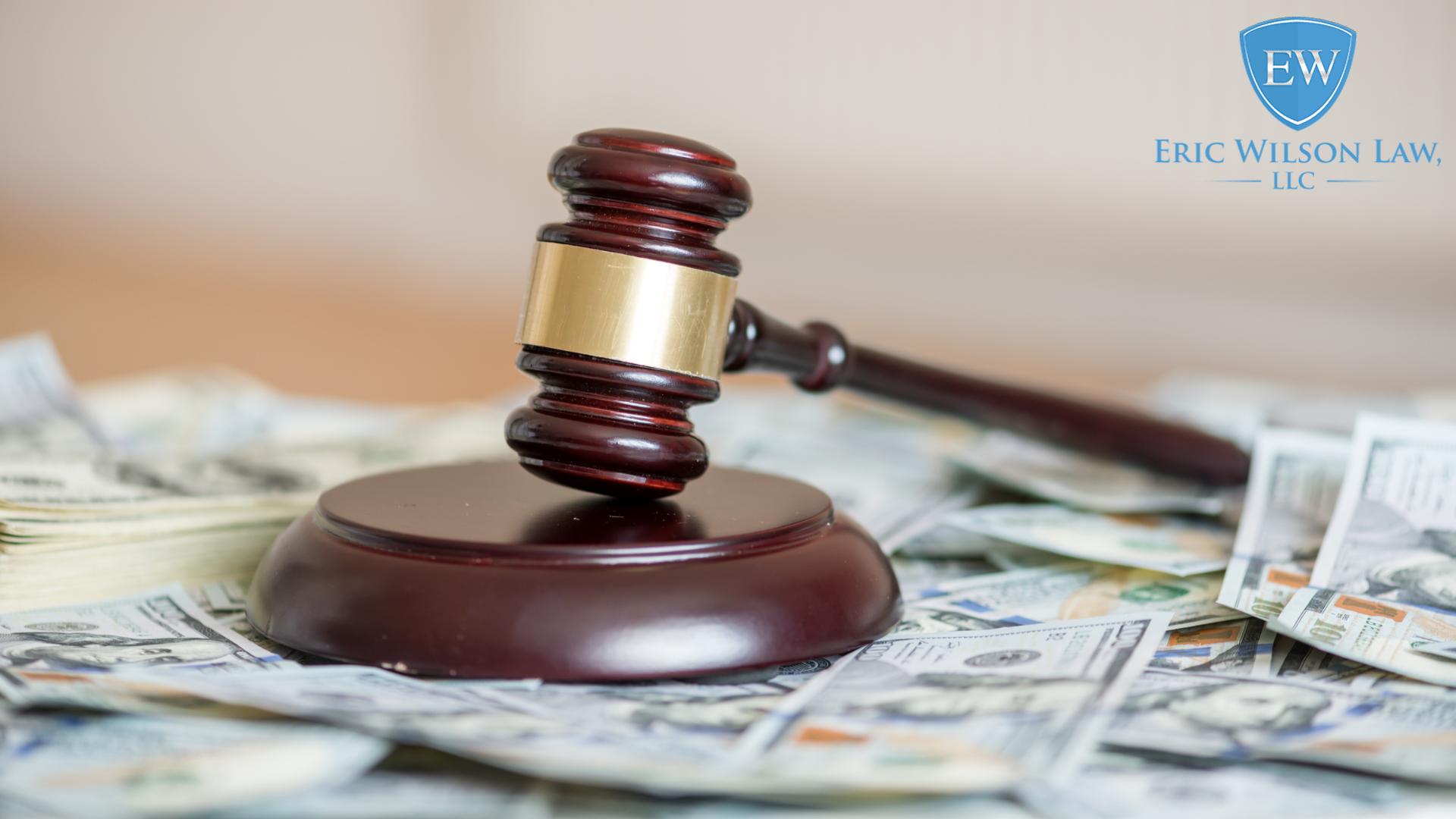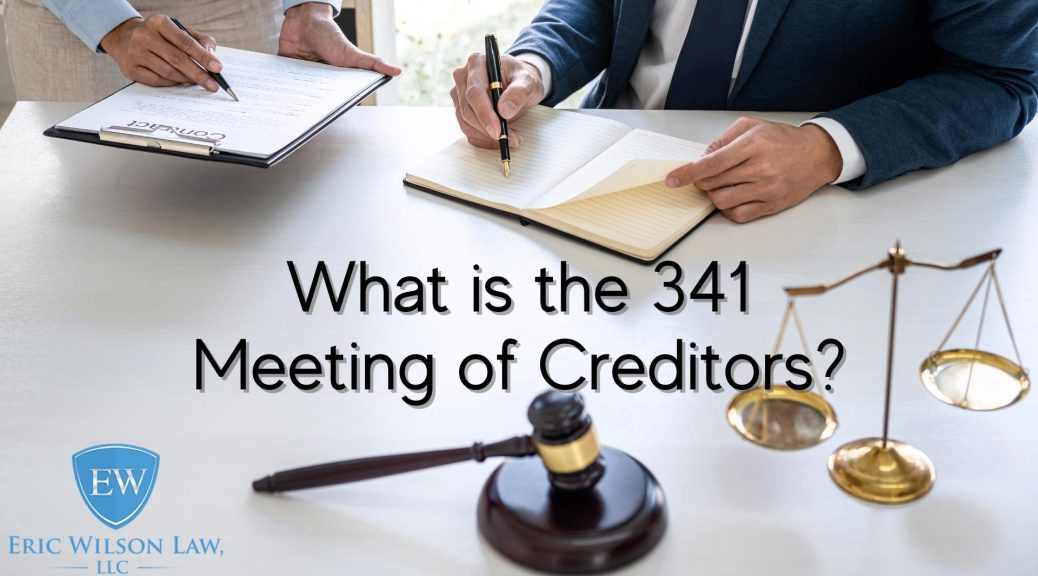Filing for Chapter 7 and Chapter 13 can be a complex process, especially without legal counsel and guidance from an experienced bankruptcy attorney. One necessary hoop that you need to jump through before concluding your bankruptcy case is the 341 meeting of creditors. If you have never filed for bankruptcy before, the possibility of meeting with your creditors can sound incredibly intimidating. Below, Eric Wilson discusses everything you need to know about the 341 meeting of creditors: what it is, what it’s for, who attends, what to expect, and so much more.
If you are drowning in debt, it’s time to reach out for professional help. Filing for Chapter 7 and Chapter 13 bankruptcy can be a life-saving tool that can get you back on your feet – financially – in as little as 90 days. Call 205-349-1280 to schedule a free consultation with Tuscaloosa bankruptcy lawyer Eric Wilson today.
What is the 341 Meeting of Creditors?
The 341 meeting of creditors takes place during the course of a bankruptcy proceeding. The name comes from the 341 section of the bankruptcy code. This meeting occurs about one month after filing the bankruptcy petition and is between the creditors and debtors. In order for the 341 meeting to be considered legally valid, both the individual filing for bankruptcy must be present, as well as the court-appointed trustee. In Chapter 7, 12, or 13 bankruptcy cases, the trustee conducts the 341 meeting, but during a Chapter 11 bankruptcy case, a representative from the United States Trustee conducts the meeting.
What is the Purpose of a 341 Meeting of Creditors?
The purpose of the 341 meeting is to make sure that all the bankruptcy papers are in order and to establish the facts of the bankruptcy filing. During this meeting, the bankruptcy trustee and creditors will ask you questions under oath regarding your bankruptcy petition and bankruptcy paperwork you must provide the trustee. The meeting of creditors verifies that the information in the bankruptcy papers is correct and complete.
How Do I Know the Date of My 341 Meeting?
The bankruptcy court will notify you of the date of the creditor’s meeting. Your creditors will also be notified. The meeting takes place 21 to 40 days after your bankruptcy filing date. Meetings typically occur in person in a federal building, or they can be held at an off-site location. You will be notified of where the meeting will be held when you are told the date. Other debtors will be present at the meeting, so it’s important to view the docket to know when your case falls. These meetings typically last 10 to 15 minutes.

Who Attends the 341 Meeting?
While the debtors’ bankruptcy attorney is welcome to attend the creditor’s meeting, the only individuals required to attend are the debtor and court-appointed trustee. A judge does not preside over this meeting. During the bankruptcy process, debtors will likely never see a judge. Instead, the court-appointed trustee will oversee the meeting. If you’re scheduled for an in-person meeting of creditors, you will likely be one of about ten cases the trustee will handle. If this is the case, you should be able to observe the meetings ahead of you to know what to expect.
Even though the bankruptcy court notifies the creditors of the meeting, they rarely attend. Creditors will only participate in the 341 meeting if they suspect the debtor is hiding assets or committing bankruptcy fraud. Other creditors that will most likely participate in the meeting are ex-spouses or former business partners. These creditors show up to know if they will receive collateral. Also, creditors that are suing you will usually show up to the meeting.
If you are filing bankruptcy with your spouse, both spouses must be present at the meeting of creditors.
The Responsibilities of a Bankruptcy Trustee During a 341 Meeting
The bankruptcy trustee is responsible for running the meeting of creditors. The trustee will evaluate the bankruptcy paperwork and 521 documents to prepare for the meeting. The trustee might also ask for real estate deeds, car titles, proof of insurance, mortgage, and vehicle loan statements, marital settlement agreements, and court orders. The trustee also reviews your bankruptcy paperwork, verifies your identity, investigates potential bankruptcy fraud, determines if your Chapter 7 bankruptcy needs to be converted to a Chapter 13 bankruptcy, and sells nonexempt property to pay back creditors.
What to Bring to a 341 Meeting of Creditors
For your meeting of creditors, you will need to bring photo identification and proof of your social security number. Prior to the meeting, you will need to provide a copy of your most current federal income tax return, pay stubs, and bank statements. Your trustee may also require you to provide additional documentation before the meeting. Even if you have already given your trustee the required paperwork, it’s best to bring copies to the meeting. The most common documents that you might be required to bring to the meeting of creditors are:
- Bank and retirement statements
- Car registrations
- Proof of home or car insurance
- Property valuations
- Domestic support obligation
- Profit and loss statements if you’re self-employed
You will also need to bring any documents that were not provided in advance to the trustee. Since the trustee will need to review the documents, the meeting will likely be moved to another date. It’s also recommended that you bring your complete bankruptcy petition to the meeting.

What to Expect During a 341 Meeting of Creditors
Before the start of the 341 meeting, the trustee will verify your ID and proof of social security number. When the bankruptcy trustee calls your case, they will then examine you under oath and verify that the information provided in the bankruptcy papers is accurate. If you’ve filed for a Chapter 7 bankruptcy, the trustee sells your non-exempt assets to the creditors, so most questions will involve those assets. The trustee will continue to ask you questions regarding your bankruptcy to determine if you reviewed your bankruptcy petition before signing it, if you listed everything you own (if anything has changed since the bankruptcy filing), if you’re owed any money for any reason, and if you are expecting to receive an inheritance.
If your creditors attend the meeting, they can also question you. Since the meeting usually lasts between 10 to 15 minutes, the creditor’s questions will be brief. However, if the creditor requires further questioning, the meeting can be continued at a later date. Creditors will typically question you about the location and nature of assets as well as other financial information. Oftentimes when a creditor attends the 341 meeting, it is to determine if they need to bring an action against you to dispute the discharge of debt. The creditors that will most likely attend are typically a hostile former business partner or ex-spouse. Any creditors that can collect collateral, such as a car, usually attend the meetings.
What Happens if You Can’t Attend Your 341 Meeting?
If you miss the meeting of creditors, you run the risk of your bankruptcy petition being dismissed. There is a possibility that your case will not be dismissed, but that depends on several factors. If you are going to miss the meeting, you must notify your bankruptcy trustee immediately. The meeting might be rescheduled depending on the circumstances of why you cannot attend. If you have a medical or family emergency, a serious medical condition, a natural disaster occurs, you become incarcerated, or you are actively serving in the military, your trustee will most likely continue with your bankruptcy case. If you are unable to attend the meeting of creditors, your trustee could also give you the option to attend the meeting via telephone.
If your bankruptcy filing is dismissed, you should be able to refile immediately. The only downside is that you will lose your automatic stay within one year of dismissal. In order to keep the automatic stay, you’ll need to file a motion for an extension to stay protected.

Call a Tuscaloosa Bankruptcy Lawyer at Eric Wilson Law Today
Filing for bankruptcy can be a highly complex process. If you’re considering filing, you’ll want an experienced bankruptcy attorney representing you throughout the entire process. At Eric Wilson Law, our Tuscaloosa bankruptcy attorneys are here to help. We will prepare you for the 341 meeting and evaluate your bankruptcy petition carefully to ensure that your trustee will have no issues once that meeting begins. If you’re considering bankruptcy, call 205-349-1280 today for a free consultation.


